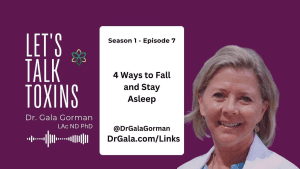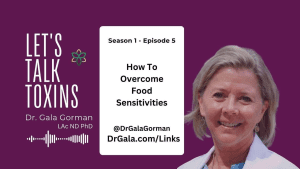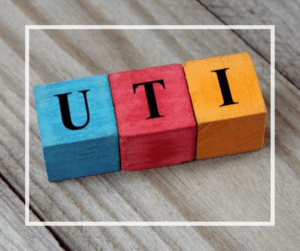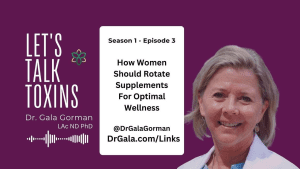You’re not “cruising” through menopause. Rather, you’re wrestling with relentless fatigue. Supplements can help with menopause fatigue. But which ones work best?
There are things you can do to restore energy and vitality. Let’s uncover the best supplements for menopause fatigue.
Dr. Gala’s Quick Take
The most recommended supplement for menopause fatigue is a combination of essential nutrients and minerals, including iron, vitamin B12, omega-3 fatty acids, magnesium, and calcium. These supplements can help address nutrient deficiencies, support energy production, and alleviate menopause symptoms. It is essential to consult with a healthcare professional before starting any supplementation to ensure it is safe and appropriate for your specific needs.
While I don’t recommend taking any medication or supplements long-term, we may choose to suppress symptoms short-term after making sure we have all the information the symptoms provide. Remember, symptoms are clues and point us to the root cause of the problem.
Nutrient Deficiencies in Menopause Fatigue
You’re not alone in feeling fatigued during menopause. Nutrient deficiencies may be playing a part. Your body’s need for certain nutrients like iron, Vitamin B12, Omega-3 fatty acids, magnesium, and calcium may increase during this time.
Iron Deficiency Role
One crucial factor you may not be considering in your fight against menopause fatigue is your iron levels. Iron deficiency plays a significant role in the onset of menopause fatigue.
It’s vital for energy production, and without it, you can feel lethargic and worn out. Unfortunately, menopausal women are more prone to iron deficiency, amplifying the symptoms of menopause, especially fatigue.
To empower yourself, ensure you’re getting enough iron either through your diet or menopause supplements. Include iron-rich foods like lean meats, legumes, and fortified cereals in your meals. Your fight against fatigue could be as simple as addressing this one nutrient deficiency.
Vitamin B12 Importance
When it comes to managing menopause fatigue, it’s crucial to understand the role of vitamin B12 in your diet. This mighty nutrient is a powerhouse for energy production and overall health, playing a pivotal role in your well-being during menopause.
A deficiency in vitamin B12 can lead to anemia and intensify menopausal symptoms, particularly fatigue. Therefore, getting sufficient levels of vitamin B12 becomes paramount. As one of the best supplements for menopause fatigue, it helps maintain energy levels, ensuring you stay vibrant and energetic throughout the day.
Remember, embracing vitamins for menopause, specifically B12, isn’t just about managing symptoms, it’s about fueling your energy production system.
Now, let’s explore another potent supplement for menopause fatigue – omega-3 fatty acids.

Omega-3 Fatty Acids
Don’t underestimate the power of omega-3 fatty acids in combating menopause fatigue. As a woman going through menopause, your body is experiencing changes. Fatigue can hit hard, but the right supplements can provide relief.
Omega-3 fatty acids are a top choice. Not only do they help with night sweats and mood changes common in menopause, but they also offer benefits for depression, anxiety, and metabolic health. These fatty acids are a potent weapon in your arsenal, offering potential relief for fatigue and providing overall support for your metabolic health.
Power up your body with these proven supplements for menopause fatigue. Empower yourself in this journey. You’re not alone. And with omega-3 fatty acids, you’re taking a strong step towards wellness.
Magnesium Deficiency Impact
You’re likely aware of the toll menopause is taking on your body, but you might not know that a deficiency in magnesium can worsen your fatigue during this time. A magnesium deficiency during the menopause transition exacerbates symptoms like hot flashes and insomnia.
Here’s how magnesium can help:
- Alleviates insomnia, reducing your fatigue.
- Helps manage stress, a common trigger for menopause symptoms.
- Can improve mental health changes, impacting your energy levels.
- Certain types, like magnesium glycinate, enhance sleep quality.
- Addressing this deficiency can boost overall energy, combating your fatigue.
Remember, the best supplements for menopause fatigue are those that address to your specific deficiencies.
Calcium for Bone Health
There’s another key player that helps to combat menopause fatigue: calcium. It’s a vital nutrient for maintaining your bone health.
During menopause, your body’s bone loss can accelerate, leading to decreased bone density and an increased fracture risk. Increasing calcium in your diet can help fend off these unwanted changes.
Women under 51 should aim for 1,000 milligrams daily, while those 51 and older need 1,200 milligrams. You can boost your calcium intake through food or smaller doses of supplements taken with meals.
Remember, calcium isn’t just for bone health, it’s a crucial player in your fight against menopause fatigue. You have the power to protect your bones and keep fatigue at bay.

Vitamins for Menopause Fatigue
You’re not alone in your struggle with menopause fatigue, and increasing vitamins could be the boost you need.
We’ve already discussed B12. But there are many B vitamins and their roles are vital for energy production and metabolism, while Vitamin E can alleviate sleep disturbances and other symptoms.
Don’t underestimate the importance of Vitamin D either, as a deficiency can significantly contribute to your fatigue.
B Vitamins Role
Understanding the role of B vitamins in combating menopause fatigue is essential for your overall well-being. These power-packed nutrients are among the best supplements for menopause fatigue.
Here’s why:
- Vitamin B complex supports energy production, helping you combat fatigue.
- Vitamins B2, B6, B9, and B12 can alleviate symptoms like hot flashes and insomnia.
- B6 aids in preventing energy loss and depression from low serotonin levels.
- B12, crucial for energy production, is especially vital during and after menopause.
- B6 also helps balance serotonin, which drops as you age, leading to mood swings.
Integrating B vitamins into your diet can improve mood and aid in managing stress.
Armed with this knowledge, let’s now explore the benefits of vitamin E in the menopause journey.
Vitamin E Benefits
In your battle against menopause fatigue, vitamin E can be a powerful ally due to its potent antioxidant properties and ability to reduce inflammation. The benefits of vitamin E extend beyond just combating fatigue. It also helps to decrease the risk of depression, stress, heart disease, and weight gain, all of which are commonly associated with menopause.
It’s one of the best supplements for menopause fatigue, especially since it also alleviates symptoms of genitourinary syndrome and aids in managing chronic insomnia, hot flashes, and sleep disturbances. To maximize these vitamin E benefits, aim for at least 15 mg daily.
There are also risks associated with using medication or supplementation that include side effects. Medication or supplements should only be used short-term to buy some time to determine the root cause of the problem.
You’re not just surviving menopause; you’re powering through it, and vitamin E is here to ensure your victory.

Vitamin D Importance
Don’t underestimate the role of vitamin D in battling menopause fatigue. As you navigate the physical symptoms of menopause, this potent nutrient can be your secret weapon. It’s not just about bone health; vitamin D can significantly improve your quality of life during this transitional period.
Here’s why:
- A vitamin D deficiency can leave you feeling tired. Supplementing can help you regain your zest for life.
- Adequate vitamin D is crucial for bone health, helping you stay strong and active.
- It can help improve sleep, a common issue during menopause.
- Rich sources include sunlight and certain foods, giving you control over your intake.
- Older women, particularly those with limited sun exposure, are at risk of deficiency. Regular check-ups can help ensure optimal levels.
Embrace the power of vitamin D. It’s your secret weapon to take control of menopause fatigue.
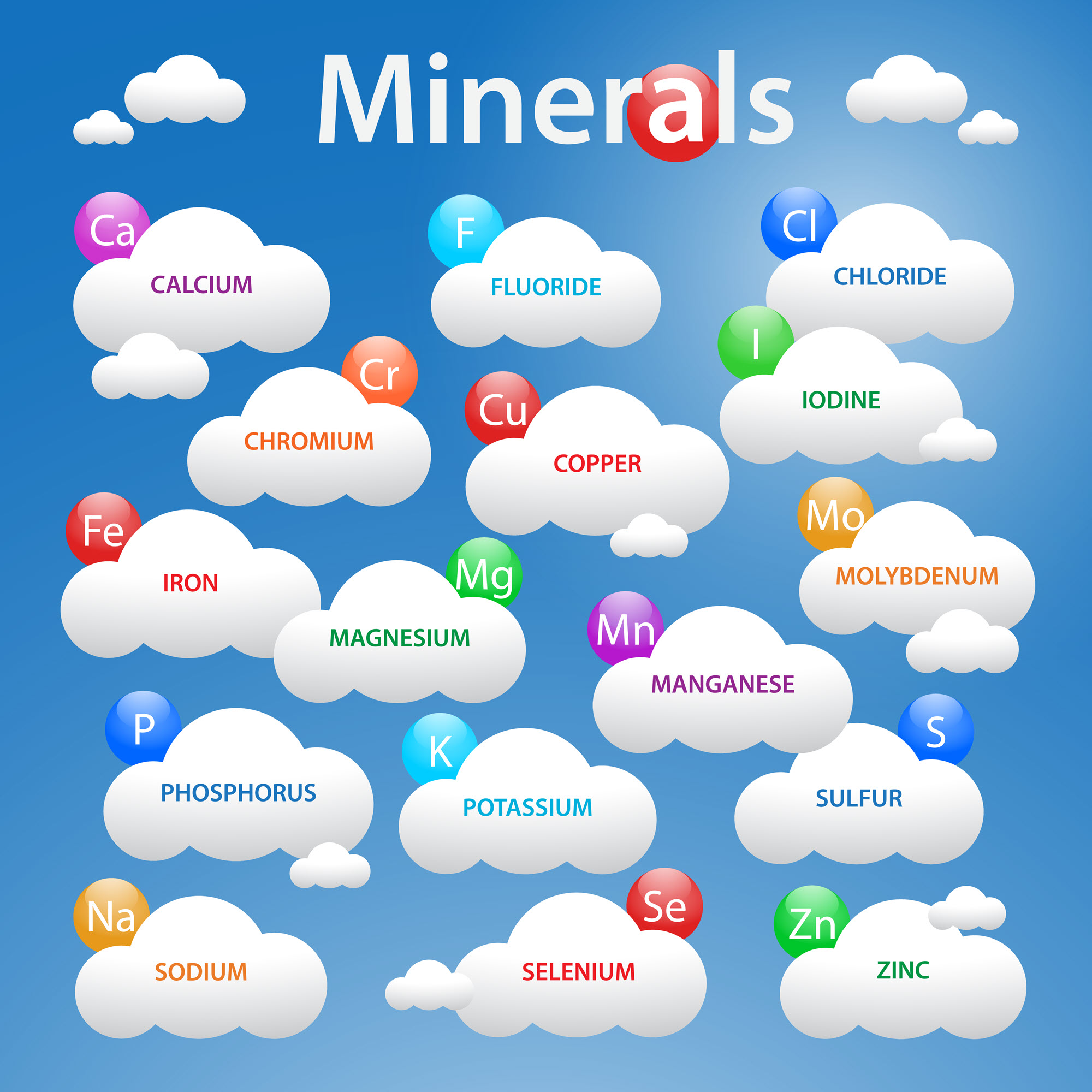
Minerals for Menopause Fatigue
Now, let’s shift our focus to some essential minerals that can make a considerable difference in battling menopause fatigue.
Iron plays a crucial role, as it’s known to combat fatigue and improve your energy levels.
Meanwhile, the benefits of magnesium, particularly in improving sleep quality, can’t be overlooked.
Essential Minerals Role
Consider incorporating essential minerals into your daily regimen to combat menopause fatigue and support your overall health during this transition. These minerals play a vital role in managing your energy levels, hormonal balance, and overall well-being.
- Magnesium aids in reducing symptoms like hot flashes and insomnia.
- Calcium combats bone loss, a common post-menopausal concern, and may boost your energy.
- Iron promotes oxygen transport, essential for energy production.
- Zinc can assist in balancing fluctuating hormone levels.
- Potassium helps maintain proper cell function and hydration.
These minerals, combined with lifestyle changes and the best supplements for menopause fatigue, can accumulate making a significant positive difference.
Iron and Fatigue
Building on the importance of essential minerals, let’s explore the role of iron in combating menopause fatigue.
Iron deficiency is common during menopause and can seriously amplify your fatigue. Iron and fatigue are closely linked, so it’s crucial to keep your levels in check.
If you have been formally diagnosed with iron deficiency, supplements may be recommended. Supplements can create unwanted side effects. It’s better to supplement with iron-rich foods. Incorporating more meat into your diet will help.
And, Vitamin C enhances iron absorption. So don’t forget your citrus fruits!
Remember, these nutrients can help, but they’re not a solo solution. Pairing them with natural estrogen balance creates a powerful combination.
Magnesium Benefits
You’ll find that magnesium, a vital mineral, plays a significant role in easing menopause fatigue. It’s one of the best supplements for menopause fatigue, boasting a range of exciting benefits.
Here’s a refresh and a few more compelling reasons to monitor magnesium levels.
- Magnesium supplements may help with insomnia and stress, common symptoms of menopause fatigue.
- Forms like magnesium glycinate can improve sleep quality, reducing fatigue.
- Magnesium assists in managing sleep issues and hot flashes, providing relief.
- It’s crucial for energy production and metabolism, helping you regain your vitality.
- It may reduce inflammation, a root cause of fatigue.
- Muscle cramps … especially at night … are often a sign of mineral deficiency.
Harness the power of magnesium and move forward into this new chapter with confidence.

Herbs for Menopause Fatigue
You’re not alone in your struggle with menopause fatigue, and the right herbs may just be your new best allies.
Consider exploring the benefits of black cohosh and maca root or the effects of American ginseng, all of which have been recognized for their potential to alleviate menopause symptoms.
Evening primrose oil and ashwagandha could also play supporting roles … providing relief and rejuvenation.
If you are taking medications, it is important to consult with the prescribing doctor before taking any herb or supplement. You may create a reaction that is difficult to unravel without a thorough understanding of what creates a potential conflict.
Black Cohosh Benefits
If you’re looking to combat menopause fatigue, black cohosh might come in handy, as its potential benefits include reducing hot flashes and improving sleep quality. This North American herb has been used for centuries to treat menopause symptoms, and it may help you regain control over your body’s fluctuating hormone levels.
Here are some potential benefits of black cohosh:
- Reduction in hot flashes
- Improved sleep quality
- Potential hormone level regulation
- Historical use for menopause relief
Maca Root Usage
As one of the top herbs for menopause fatigue, maca root can significantly enhance your energy levels and improve your mood. It’s a powerhouse among the best supplements for menopause fatigue, and it’s a natural alternative to hormone therapy.
The key to maca root usage lies in using high-quality, potent herbs. Maca root has the potential to help ease menopause symptoms, particularly fatigue. It works by balancing your hormones… restoring your vitality and zest for life.
So, why not consider this natural alternative? It might just be the energy and mood booster you’ve been looking for. The risks associated with using high-quality herbs are less than what is often experienced with prescription hormone replacement therapy medication.
American Ginseng Effects
When it comes to your battle with menopause fatigue, American ginseng can’t be overlooked. This powerful herb can serve as a natural alternative to hormone replacement therapy. Studies show significant positive effects from the use of American ginseng in alleviating menopause symptoms.
Here are a few key benefits:
- Decreases menopause fatigue
- Relieves hot flashes
- Improves mood and sleep quality
- Alleviates symptoms of depression and vaginal dryness
- Enhances overall quality of life during menopause
American ginseng is one of the best supplements for menopause fatigue. Its use could transform your journey through this life transition.
Evening Primrose Oil Importance
You should consider the importance of evening primrose oil, a potent herb, in your fight against menopause fatigue. This remarkable supplement could be a game-changer for you. Packed with gamma-linolenic acid, it helps regulate your estrogen levels, potentially easing hot flashes and mood changes.
Imagine reclaiming your sleep and making peace with your body. That’s the power of evening primrose oil! Studies suggest its effectiveness in reducing breast tenderness and promoting emotional well-being.
It’s one of the best supplements for menopause fatigue and could be a valuable addition to your menopause management strategy. Again, if you’re taking medication, clear any herb or supplement with your prescribing physician. You wouldn’t want to take evening primrose oil if you’re also taking blood thinners.
Ashwagandha and Menopause
Struggling with menopause fatigue? Consider the potential benefits of integrating Ashwagandha into your daily routine. Known as one of the best supplements for menopause fatigue, this powerful herb may help balance your hormone levels and ease menopause symptoms.
- Ashwagandha has potential anti-inflammatory and antimicrobial properties, which may help reduce hot flashes and other discomfort.
- It’s suggested to have neuroprotective qualities, potentially easing insomnia and mood changes.
- Research indicates possible benefits in managing fatigue, although further studies are needed.
Remember, only purchase supplements from reputable sources and use them with caution.
Embrace your power and take control of your menopause journey. Next, let’s explore the role of certain foods in combating menopause fatigue.

Foods for Menopause Fatigue
You’re not just what you eat but how you feel, too. By focusing on foods rich in essential nutrients, making optimal diet choices, and understanding the role of hydration, you can give your body the energy it needs to tackle menopause fatigue.
Food is the best medicine. High-quality, nutrient-dense food is least likely to create unwanted side effects … and will most likely do the body good.
Let’s explore how to use food to boost your energy … and which foods to avoid that could drain it.
Essential Nutrients Requirement
In dealing with menopause fatigue, you must incorporate essential nutrients in your diet, which can be found in certain foods. This is your power play against the hormonal changes wreaking havoc in your body.
- Vitamin B complex – boosts energy production and metabolism
- Vitamin C – improves cellular energy production
- Vitamin D – fights off deficiency-related fatigue
- Vitamin E – battles chronic insomnia and hot flashes
- Magnesium – helps with stress and hypothyroidism
These essential nutrients are best consumed through food. But you may find that you need to supplement from time to time to address symptoms of menopause.
Optimal Diet Choices
So, what should you include in your diet to combat menopause fatigue effectively?
Your optimal diet choices should be packed with organic fruits and vegetables. These foods contain dietary fiber, antioxidants, and phytosterols, essential for boosting energy levels.
Don’t forget cruciferous vegetables like broccoli and kale, which are rich in indole-3-carbinol, a hormone regulator.
Include omega-3 fats from fish and flaxseed in your meals. They’re healthy fats that protect your heart, promote smooth skin, and counteract inflammation, potentially alleviating menopause symptoms.
Probiotic foods like yogurt improve hormone regulation and immune function. If you’re sensitive to dairy, try oat milk yogurt. That’s my preference.
Remember, the best supplements for menopause fatigue go hand-in-hand with a robust diet. You’re in control.
Hydration’s Role
Hydration plays a key role in managing menopause fatigue. It’s essential to understand that drinking plenty of high-quality water isn’t just about quenching your thirst … it’s a crucial part of keeping your body functioning optimally during menopause. Hydration’s role is pivotal in your fight against menopause fatigue.
To empower you, here are some lifestyle habits to remember:
- Drink at least eight glasses of water daily.
- Include hydrating foods like organic fruits and vegetables in your diet.
- Consume probiotic foods like yogurt and sauerkraut.
- Avoid high-carb foods; opt for whole, hydrating foods.
Generally, you should consume about 100 oz. of high-quality water every day. Hydration is critical for all systems to function properly.
Food-Induced Energy Boost
In your quest to fight menopause fatigue, incorporating energy-boosting foods into your diet can work hand-in-hand with hydration and supplements to enhance your overall well-being.
A diet rich in fruits, vegetables, whole grains, and lean proteins provides high levels of nourishment, empowering your body to combat fatigue. Avoid processed foods, as they can drain your energy.
Focus on foods with fiber to balance estrogen production and alleviate menopausal symptoms. Omega-3 fats found in fish and flaxseed, along with healthy fats from cold-pressed oils, regulate inflammation and provide an energy boost.
And remember, take advantage of probiotic foods like yogurt and sauerkraut for improved hormone regulation. Fuel up with things that support your body’s menopause journey.
Avoiding Energy-Draining Foods
As you navigate through menopause, it’s crucial to know the types of foods that can drain your energy and exacerbate fatigue. Alongside taking the best supplements for menopause fatigue, avoiding energy-draining foods is a powerful step towards battling menopause fatigue.
Consider reducing the following from your diet:
- Processed foods: They’re high in sugars and unhealthy fats that sap your energy.
- Caffeine: It can mess with your sleep, leaving you more tired.
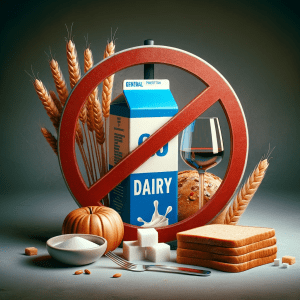
If you’re looking for a DIY approach you can apply at home, the best place to start is with what I refer to as the “Big 5.” Avoid these, and your body will find relief naturally.
- Dairy
- Gluten
- Yeast
- Sugar
- Alcohol.
Frequently Asked Questions
How Do You Beat Fatigue in Menopause?
You’re not alone in this fight against menopause fatigue. Try incorporating regular exercise, a balanced diet, and ample rest into your routine. Remember, it’s okay to ask for help when you need it.
What Is Crashing Fatigue During Menopause?
Crashing fatigue during menopause is a sudden, overwhelming tiredness. It’s distinct from normal exhaustion. There are strategies you can adopt to counter it, like a balanced diet, exercise, and stress management.
Is Extreme Fatigue Normal During Menopause?
Yes, extreme fatigue is a normal, yet challenging, part of menopause due to the additional stress. There are natural methods to regain your vitality.
What Is the Most Recommended Supplement for Menopause?
Navigating menopause isn’t easy, but you’re not powerless. Vitamins B, C, D, E, and Omega-3 fatty acids are highly recommended. They’ll help you regain energy, sleep better, and conquer menopause fatigue like a warrior.
Key Takeaways
- Nutrient deficiencies, especially iron deficiency, can contribute to menopause fatigue.
- Including iron-rich foods and considering iron supplementation can help alleviate fatigue.
- B vitamins, especially vitamin B complex, and vitamin B6 play a vital role in managing menopause fatigue.
- Supplements like vitamin E, vitamin D, magnesium, and calcium can also help combat fatigue and improve overall well-being during menopause.
Doubt may whisper that these supplements won’t work for you. But imagine waking up vibrant and full of energy. With the right guidance and a personalized supplement regime, you can say goodbye to debilitating symptoms like menopause fatigue.
“If you came into my office, I’d ask you a lot of questions that would help us connect the dots … so that together we can deal with your toxic stress.
Every situation is unique and you need a plan that works for you. Not a one-size-fits-all solution.
If you’re thinking you can’t come into my office, don’t worry. I’ve created a program with all of my initial recommendations to help you unravel the mystery. You can use it at home and at your convenience.
So if you’re thinking that managing chronic stress just isn’t possible … or even the answer … for you, I want to show you what you may be missing.
And how you can identify the toxic stressors that are creating your symptoms with my Human Energy System Reboot. You can get started HERE.” – Dr. Gala



